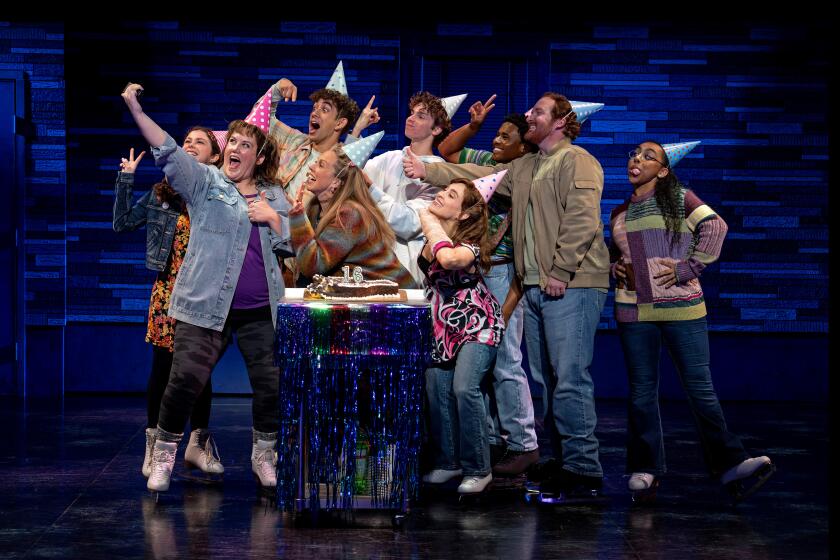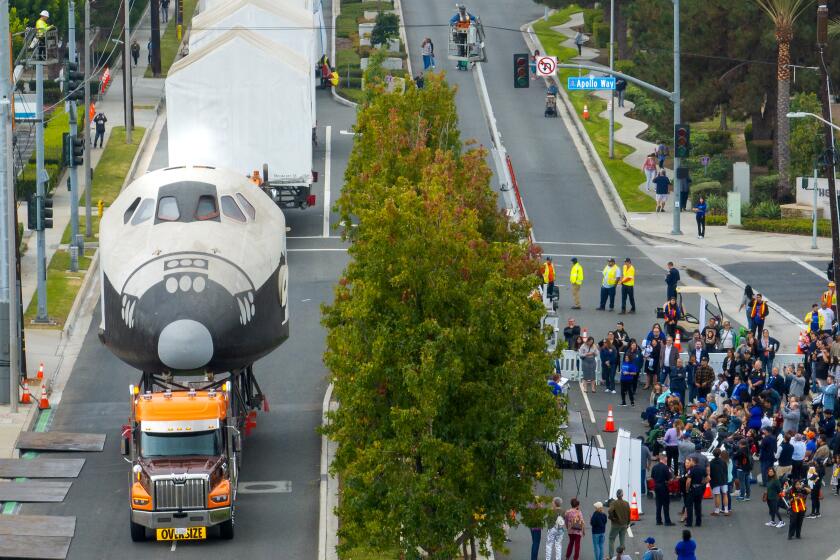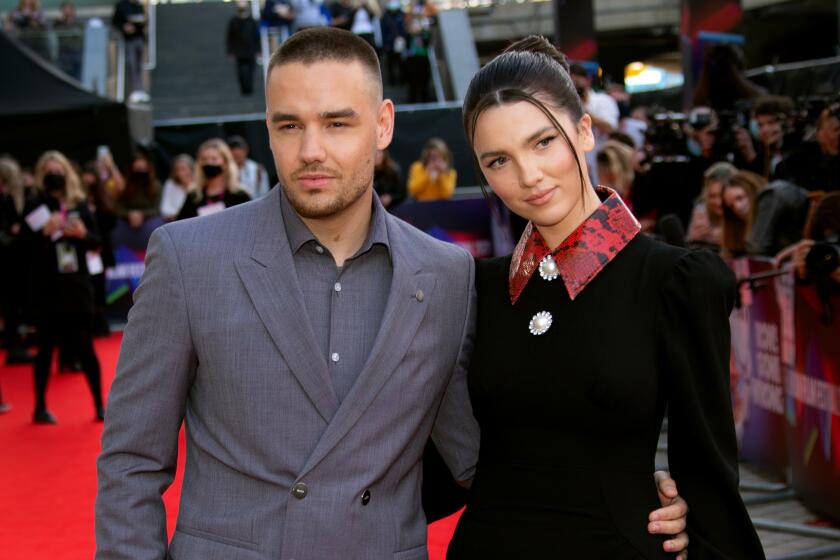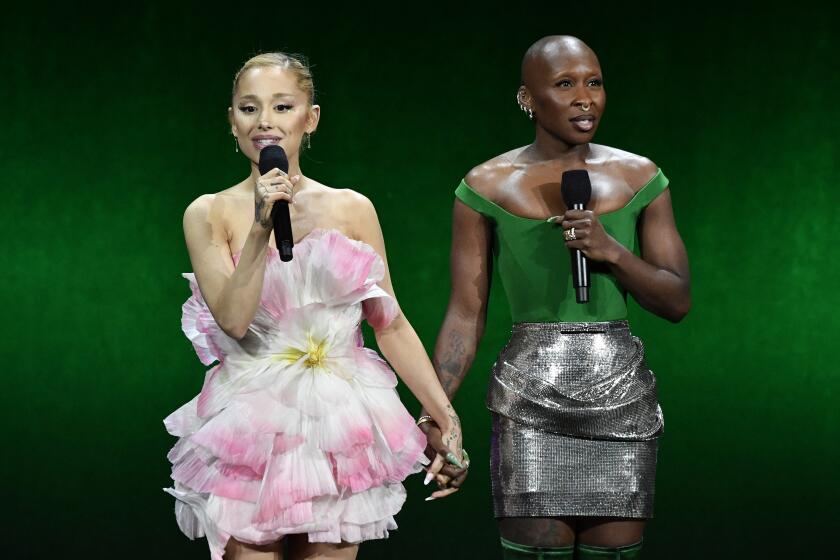Carnegie’s Harth will be missed
From the moment Robert J. Harth was found dead of an apparent heart attack in his New York apartment Friday night, the shock waves began reverberating through the music community. Harth was 47 and in his three years as executive director of Carnegie Hall had weathered several crises. He had also brought a fresh spirit to a venerable arts institution, especially in the wonderfully diverse programming of Zankel Hall, the 644-seat underground venue that opened last September.
Harth was calm, personable and dedicated. He came to New York via the Los Angeles Philharmonic and the Aspen Music Festival. No New Yorker, he could appear a bit more laid-back than expected from a New York arts administrator.
Not for him the roost-ruling managerial style of the Metropolitan Opera’s Joseph Volpe, known for putting temperamental divas, hotheaded conductors, uppity directors and cigar-mashing union officials in their place. But in his low-key way, Harth proved a lot tougher and more visionary than he seemed. It didn’t take him long to win the music community’s respect and affection.
This was certainly surprising to New Yorkers who assume that only sharks can swim among other sharks. On this coast, however, fewer observers were taken unawares. We had known Robert (it is hard not to think of him as Robert) for a long time.
Harth learned his trade at the hands of a master, at a remarkably early and impressionable age. In 1979, Ernest Fleischmann appointed the 23-year-old Harth general manager of the Los Angeles Philharmonic and put him in charge of running the Hollywood Bowl. It was just the seemingly crazy kind of sink-or-swim thing Fleischmann liked to do. Later, Harth jovially admitted he had been in way over his head.
But Fleischmann clearly recognized Harth’s inner resources as well as an interesting musical mind and an innate feel for the business. Harth grew up in the orchestra world. His father, Sidney, was concertmaster of the Philharmonic from 1973 to 1979. Plus, Robert had wide musical interests. He had studied flute, violin and conducting, but they never superseded his passion for pop music.
Besides his faith in youth, Fleischmann always pushed the envelope, seeking ever-new ways to make the orchestra a vital institution. This was precisely the spirit that Harth then brought to Carnegie.
He also carried along a sampling of West Coast sunshine. From its founding, Carnegie had been a bastion of East Coast and European culture. Tchaikovsky conducted the opening concert in 1891.
But Harth opened its windows wide enough to let in the west-east jet stream. Carnegie’s senior director and artistic advisor is Ara Guzelimian, who succeeded Harth at L.A. Phil and also worked with him in Aspen. And one of the reasons Zankel Hall has refreshed the frozen Big Apple is that Harth invited Nonesuch Records’ Robert Hurwitz, a native Angeleno, to produce concerts in Zankel.
Now Senegalese singer Youssou N’Dour, Pierre Boulez, Randy Newman, Elliot Carter and Steve Reich all rub shoulders. If you happen to be in New York on Sunday and wander into Zankel in the afternoon, you’ll be able to hear a conversation between Carnegie composer-in-residence John Adams and L.A. architect Frank Gehry.
What is particularly interesting is that none of this has been in the least part controversial. Reich and Carter may not think much of each other’s music, but New Yorkers, and particularly young New Yorkers, have been flocking to these diverse offerings. The larger, iconic Carnegie Hall, meanwhile, still welcomes all the world’s great ensembles and soloists. And some of today’s most interesting performers -- the likes of Dawn Upshaw, Gidon Kremer, Peter Serkin and Michael Tilson Thomas -- have been asked to program concerts.
It’s a quiet revolution. And it is remarkable that Harth managed it under difficult conditions. To be sure, he inherited some concepts, such as the artist-curated series. But he also inherited circumstances no one could envy. He began his job on Sept. 16, 2001. Two weeks later, Isaac Stern, Carnegie’s patriarch, died.
New York was a mess. And so was Carnegie. The Sept. 11 attacks emptied concert halls. The previous executive director, Franz Xaver Ohnesorg, had a powerful intellectual vision for Carnegie but was so thoroughly disliked by his staff that he was forced to resign, and it looked to outsiders as though Carnegie wanted him to take his vision back to Germany with him.
But as a soothing presence, Harth was able to suggest innovations without threats and insults. Carnegie mended. Concertgoers returned. And then last summer, just as Harth was preparing for the opening of Zankel, he was broadsided with the proposed merger between the New York Philharmonic and Carnegie. This time, it looked as if he was finished. Few believed that he could stand up to the powerful investment bankers on the organizations’ boards, that he would not be eaten alive by the Philharmonic.
Insiders assure me that what happened is not what people think, and maybe that means Harth displayed tenacity under pressure. This much we know: The New York Philharmonic backed down in October, shortly after the triumphant Zankel opening (where Harth and the Philharmonic’s manager, Zarin Mehta, were seen staring knives at each other). Carnegie retained its integrity. Harth remained standing.
Except he didn’t. And that is a tragedy.
More to Read
The biggest entertainment stories
Get our big stories about Hollywood, film, television, music, arts, culture and more right in your inbox as soon as they publish.
You may occasionally receive promotional content from the Los Angeles Times.











